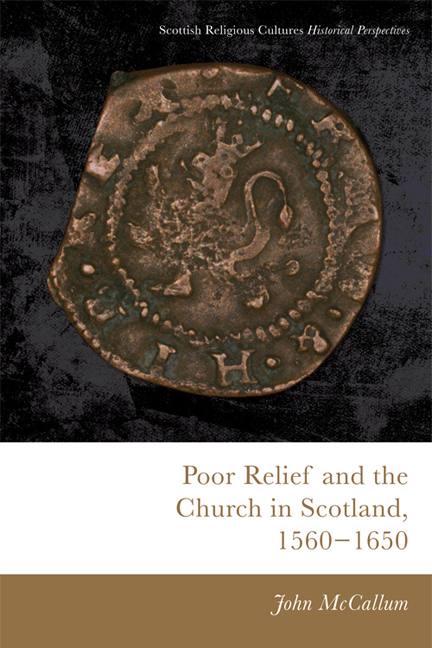Book contents
- Frontmatter
- Contents
- List of Tables
- Acknowledgements
- Conventions
- Abbreviations
- Map of Key Locations Mentioned
- Introduction
- 1 Ideas, Attitudes and Ambitions
- Part I The Development of Kirk Session Poor Relief
- Part II The Nature of Kirk Session Poor Relief
- 5 The Mechanics of Relief
- 6 Who Were the Poor? The Recipients of Relief
- 7 Who Was Deserving? Decision-making and Discrimination
- 8 Beyond the Kirk Session: Mixed Economies of Relief
- Conclusion
- Appendix Equivalent Values from Wages and Prices
- Bibliography
- Index
7 - Who Was Deserving? Decision-making and Discrimination
from Part II - The Nature of Kirk Session Poor Relief
Published online by Cambridge University Press: 14 September 2018
- Frontmatter
- Contents
- List of Tables
- Acknowledgements
- Conventions
- Abbreviations
- Map of Key Locations Mentioned
- Introduction
- 1 Ideas, Attitudes and Ambitions
- Part I The Development of Kirk Session Poor Relief
- Part II The Nature of Kirk Session Poor Relief
- 5 The Mechanics of Relief
- 6 Who Were the Poor? The Recipients of Relief
- 7 Who Was Deserving? Decision-making and Discrimination
- 8 Beyond the Kirk Session: Mixed Economies of Relief
- Conclusion
- Appendix Equivalent Values from Wages and Prices
- Bibliography
- Index
Summary
Introduction
All of the poor people discussed in Chapter 6 were evidently considered by the kirk sessions to be deserving, on some level. But how were such decisions made? What sort of people did the church consider to be deserving, and who did they consider to be undeserving? In addressing these questions, one faces a good deal of historiographical baggage. It is generally emphasised by historians that the Kirk was hostile to the able-bodied, to beggars, to strangers from outside the parish, and it tends to be assumed that relief was therefore focused on the native poor of the parish, and the impotent poor incapable of work, especially the sick, elderly and disabled. As Houston has noted for a later period, ‘historians of Scotland have studied exclusion more than provision’. Gordon Donaldson wrote that ‘neither the church nor the state believed in helping the able-bodied poor, or unemployed’, and Christopher Smout stated that ‘it was only by entering [a house of correction] that any able-bodied pauper became entitled to any relief at all’. The consensus seems to be in accord with Jenny Wormald's summation of the church's attitude as reflecting the ‘condemnatory face of Calvinism’. Such judgements, however, seem to have been made more on the basis of the prescriptive statements made by both the Kirk and secular authorities about the scourge of groups such as idle and sturdy beggars, rather than on the basis of the individual decisions made about relief by local kirk sessions. Relief and discipline were, of course, two sides of the same coin, and relief that was provided to the deserving was accompanied by harsh treatment of the undeserving. As Frohman puts it, the emphasis on the disciplinary aspect in studies of early modern poor relief is ‘not so much wrong as one-sided’. But this chapter will argue that, although there was – of course – little or no sympathy for those perceived as lazy, ungodly or immoral, decisions about the worthiness for relief of others were based more on perceived necessity than on pre-conditioned assessments about the inherent worthiness or otherwise of the able-bodied poor, or other abstract groupings.
- Type
- Chapter
- Information
- Poor Relief and the Church in Scotland, 1560–1650 , pp. 187 - 205Publisher: Edinburgh University PressPrint publication year: 2017



